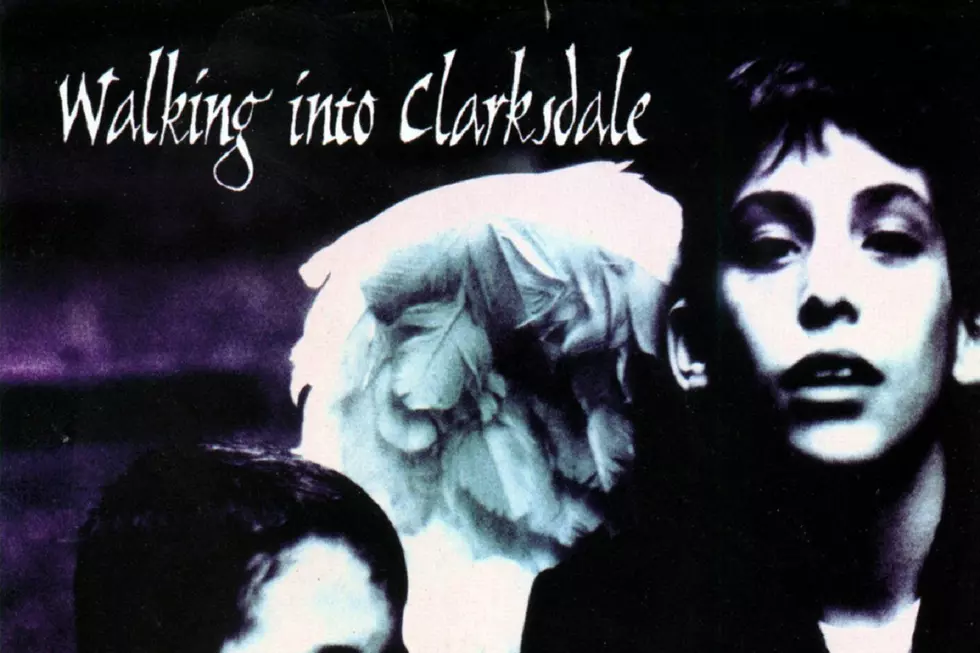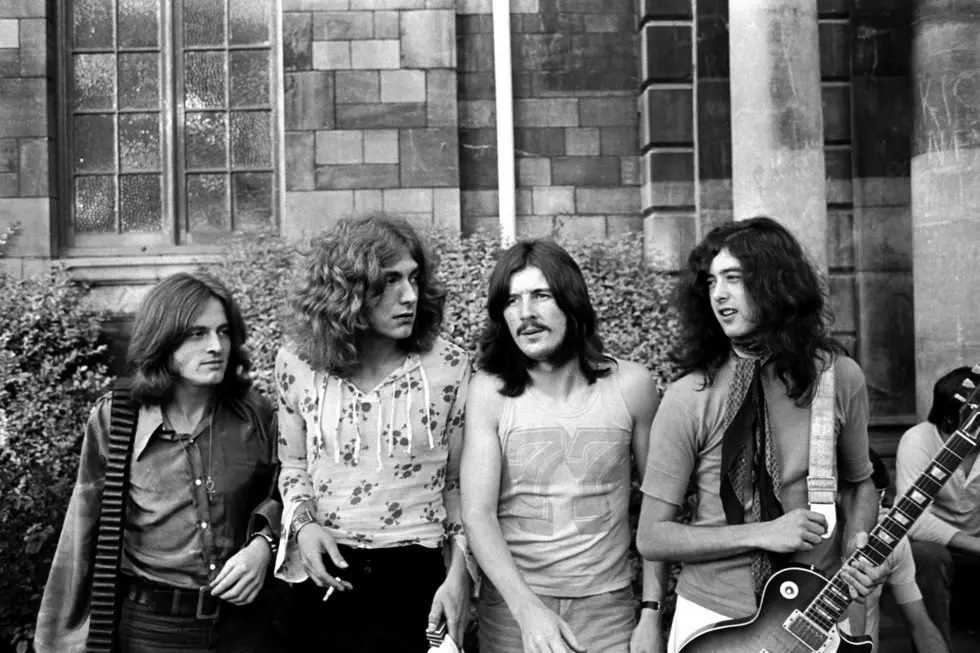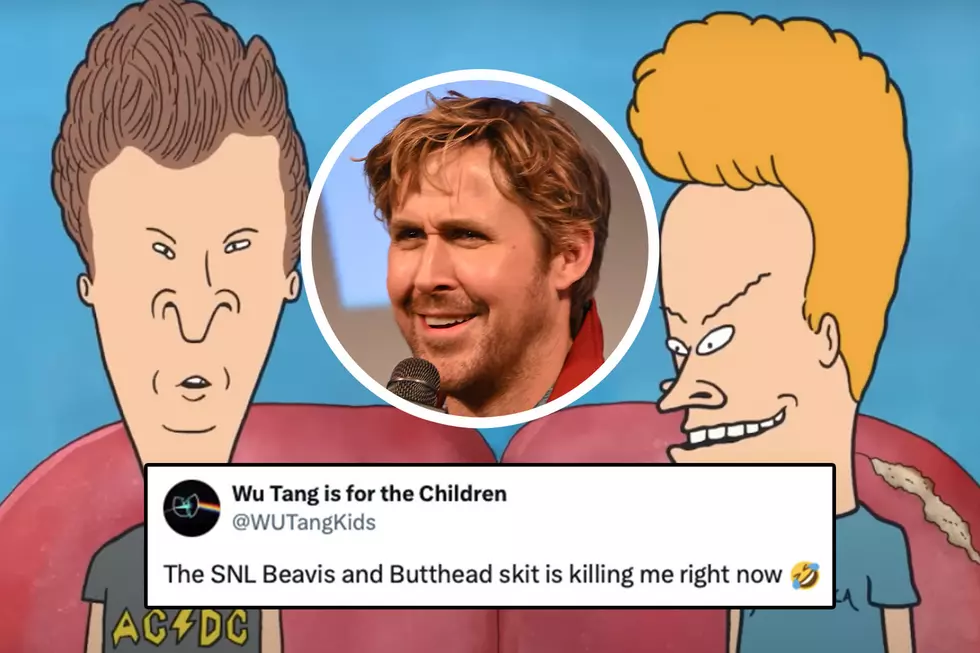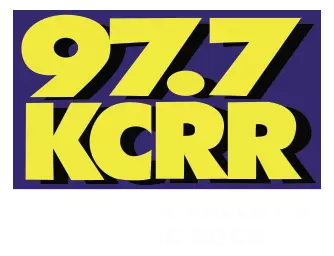
When Jimmy Page and Robert Plant Returned With ‘Walking into Clarksdale’
The excitement and success surrounding Jimmy Page and Robert Plant reconvening on the UnLedded project in 1994 not surprisingly carried over to calls for an official studio album from the former Led Zeppelin bandmates.
Walking into Clarksdale, the first full-length collaboration on new songs from the duo in nearly two decades, followed on April 21, 1998.
Hopes were high for new material almost from the beginning, as the MTV-encouraged reunion saw the pair mingling in four new tracks, "City Don't Cry," "Yallah," "Wonderful One" and "Wah Wah" – a not-unexpected return to their familiar Middle Eastern influences – into the unplugged set. An entire LP though, in a world that had witnessed grunge on its last legs, a failed Britpop invasion and the rise of tween pop, was uncertain at best.
Watching the clock tick by was hardly an option, as both Page and Plant had gone all in on UnLedded, shelving their respective solo careers. Neither had been particularly fruitful as of late: Plant's critically acclaimed Fate of Nations tanked on the charts in 1993, while Page’s ill-fated alliance with David Coverdale did well out of the gate before quickly falling victim to the shifting musical landscape.
Revitalized by UnLedded, the lineup only became tighter on tour to support it. Page, in particular, needed to get familiar with a fresh cadre of musicians including bassist Charlie Jones and drummer Michael Lee, who Plant brought along from his recent solo endeavors. The trek also featured a full orchestra to assist in best replicating the breadth of the Unplugged elements, but when it came time to decamp to the studio, things were drastically scaled down.
"After the last tour, working with the Egyptian orchestra, we wanted to go back and see how it felt to be a four-piece band and wail a bit," Plant told the Chicago Tribune at the time.
There were unsubstantiated reports John Paul Jones was asked to join in this time around, but that the estranged bass player infamously snubbed for UnLedded declined. Then, in an eyebrow-raising move, Page and Plant chose Steve Albini to produce the record, no doubt impressed by his recent run at the boards for the likes of Nirvana, Helmet and Bush, which at the very least screamed a pursuit of relevance.
"I could flatter myself and think they wanted to record with a hip producer, but I don't think of myself as particularly hip," Albini said. "Their recording method is very matter of fact, very old school, and there are very few people who make records that way anymore. And the fact that that is my preferred way of working I think appealed to them. They weren't trying to make a contemporary record at all."
Plant added: "It's kind of a daunting job, because what are you going to do with Jimmy and Robert? Because they've already got a plot and maybe they don't care anymore. Maybe they're just doing it to pass the time.”
Fans expecting a retread of Led Zeppelin’s greatest riffs were out of luck. Eery single studio album in their catalog kicked off with unrelenting bombast, but Walking into Clarksdale did the exact opposite: The languorous “Shining in the Light” – with an opening chord progression very similar to “The Weight” – eases the listener in, perhaps in a nod to the aging rockers who had dug the more laid-back and palatable UnLedded. Still, there is no tidy container in which to fit the LP, and it ended up in sort of a sonic gray area, a mixture of the light and shade Page had endlessly pursued during Zeppelin’s reign, yet one which often came off as forced and uneven.
Watch Page and Plant Perform 'When the World Was Young'
At times, the reunified team seemed to be working on entirely different fields of play. “Upon a Golden Horse,” with its orchestral inflections and attempts at '70s guitar crunch by Page, was starkly contrasted by Plant’s tempered vocals. The jagged “Sons of Freedom” feels like Plant wanted to continue down the path carved during his solo career, while his musical partner attempted to lure him back with vestiges of the past.
“I’d rather be measured by what happened two years ago or two hours ago than what happened 25 years ago,” Plant said, confirming as much, in an EPK sent out prior to the record’s release. “There were times where we could’ve actually, I think, improved on certain parts by concentrating more and more but I think it would’ve taken away from the general feel of it. Harkening back to Physical Graffiti, there are moments on that where things speed up, slow down and I’m singing out of tune – whatever it is – doesn’t matter because you capture the moment.”
To his point, much of Walking into Clarksdale was written on the fly, during the recording sessions, making for what Page would say was “a very honest album, as far as the playing aspect of it goes.” Despite the somewhat scrambled assembly of the album, it took just 35 days to lay down, which might explain its unsteady nature.
Flashes of brilliance do exist: “When the World Was Young” slowly builds to a triumphant apex in its chorus which repeats throughout the song. “Blue Train,” both somber and explosive, is a showcase for Page’s fluid dexterity. “Please Read the Letter” is reminiscent of the prolific time spent by the two at Bron-Yr-Aur in 1970, resonating so much with Plant that he reconfigured the song on 2007’s Raising Sand, his Album of the Year-winning studio project with Alison Krauss.
“Most High” was picked as a single, likely because it came the closest to echoing Led Zeppelin. And while possibly against his better judgment, Plant lets the Golden God resurface here and there. “Burning Up” and “House of Love” are both propelled by Page’s thick and energized guitar work.
There are also instances of mellowness that wouldn’t be out of place on the soundtrack to a David Lynch film, like the moody and atmospheric “Heart in Your Hand” and wistful “When I Was a Child.” Fittingly, Plant made a crack in an interview with Dave Grohl for Ray Gun magazine that Walking into Clarksdale was, “all written for Harry Dean Stanton to act to.”
Walking into Clarksdale, its title an homage to the Mississippi Delta region where their old band drew so much inspiration, never quite reached the heights of Led Zeppelin, even though his ambition was evident.
“I think the UnLedded shows how we got back together, and the new album shows why we got back together,” Page later said. Plant had a different take in retrospect, saying in 2003: "The truth is that Jimmy and I did cut a collection of songs that weren't immediately commercial and didn't emulate Led Zep. We did what we'd always done; we moved along."
Following the tour for Walking into Clarksdale, a lengthy jaunt that went from February through August, Plant gave up on the idea of going forward with Page. “I just didn’t want to do it anymore,” he said. “I’d just had enough.”
Page told Q Magazine: "I wanted to keep working, but Robert wouldn't hear of it. Also, I wanted to eventually bring in John Paul Jones, but it was hard enough getting two of us together, never mind three."
Resigned to the reality that there was no changing his singer’s mind, Page went on to tour with the Black Crowes, performing music from both of their catalogs, while Plant absconded to his quiet farm in the Wales countryside dug even deeper into his past by hooking up with his old Band of Joy guitarist Kevyn Gammond. The two fashioned tours where they cover songs that influenced them as musicians.
"Here and there on [Walking into Clarksdale] were fantastic moments, but I had had enough of that whole idea, the great expectation," Plant said. "So, I came back to the Welsh border and formed Priory of Brion, which was basically a supper act."
Led Zeppelin Solo Albums Ranked
Was Jimmy Page Almost Part of a New Supergroup?
More From 97.7 KCRR










